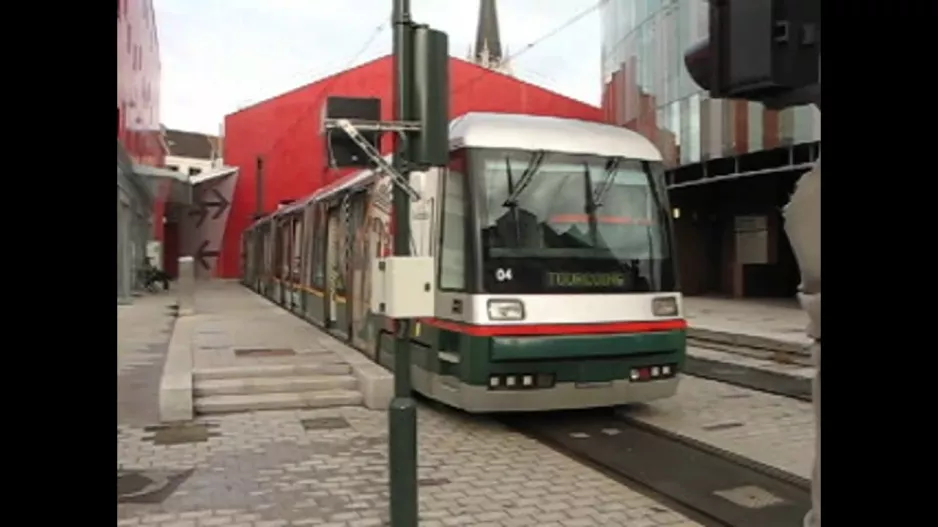Les tramways de Lille (Mongy)
YouTube Name: Nodding Cat Channel.
Sprache: Französisch.
Datum: 7. November 2010.
Stadt: Lille (Frankreich).
Das Video zeigt
ilevia
In Betrieb
Lille Straßenbahnlinie T: Gade Lille Flandres - Tourcoing Center
In Betrieb
Lille Niederflurgelenkwagen 06, Fabrik AlsandoBreda, Type Breda, markiert Tourcoing.
Lille Niederflurgelenkwagen 04, Fabrik AlsandoBreda, Type Breda, markiert Tourcoing.
Beschreibung
See the tram from Lille to Tourcoing.
Lille tramway is a tramway system located around the city of Lille, France. It is often called the Mongy, after Alfred Mongy, the engineer who created the interurban lines that make up the current system.
The current tram system consists of two interurban tram lines, connecting central Lille to the nearby communities of Roubaix and Tourcoing, and has 45 stops. The lines were built at the same time as the boulevards linking Lille to its two neighbours, and the lines run on reserved track within the boulevards for most of their length.[1][2]
The first tram line in Lille was built 1874, and the electrification of the town system started in 1897. The current interurban lines were built in 1909. While most urban lines in Lille were abandoned after 1950, the Mongy remained in service as the backbone of the public transport network of the TCC, the predecessor of Transpole. Whilst the expansion of the Metro initially threatened the trams, they were kept in service.[2][3]
The line originally terminated in the street outside the Opera House in Lille, but was diverted into a tunnel and underground terminus at the Gare de Lille-Flandres, thus offering interchange with both lines of the Metro. The line was renovated between 1991 and 1994, and new low floor trams were provided. The lines are built to metre gauge and are electrifed at 750 volts DC.[2][3]
The tram system is operated by Transpole, the public transport operator for the Lille Métropole. Transpole also operates the Lille metro (a two line underground and elevated VAL system) and 68 urban bus routes, all of which share a common ticketing system.
Improved bus fleets providing quicker and cheaper urban public transport also affected France's tram lines and for a while. Apart from three surviving fragments -- Lille, Marseilles and St Etienne -- France seemed finished with light rail.
